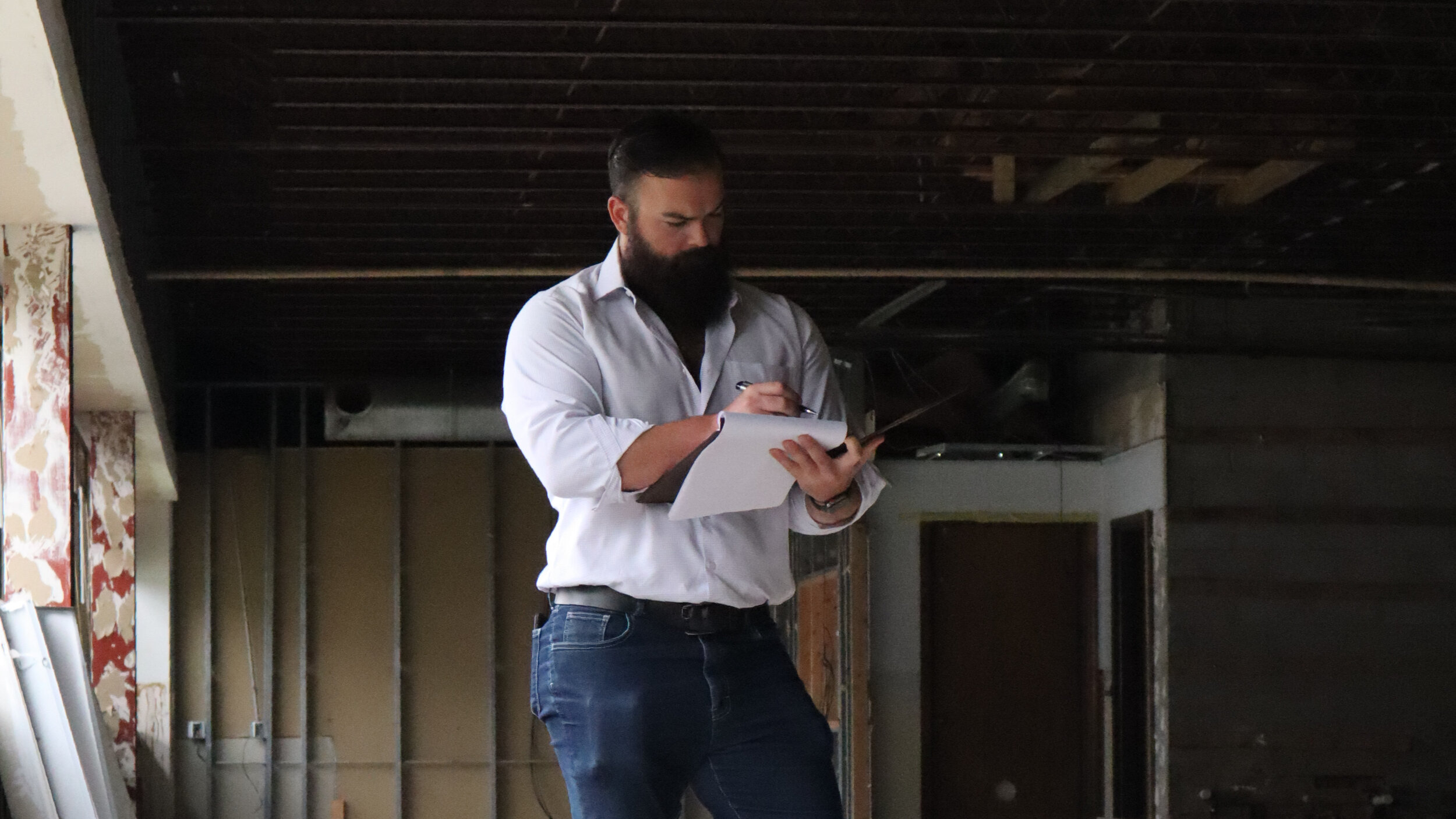Commercial Vs. Residential Real Estate
The Key Differences Between The Two
Commercial and residential real estate are two sides of the same coin, but they’re still vastly different from one another. However, many of the same principles hold true for both - location is important, they both cash flow and appreciate, and they offer many tax benefits.
Let’s dive into commercial and residential real estate to decide which is better for you as an investment vehicle.
What Is Residential Real Estate?
Residential real estate is classified as any complex with 1-4 units. This includes:
Single-Family
Condos
Duplexes
Triplexes
Quadplexes
Residential real estate is strictly for living purposes - commercial and industrial activity would typically be violations of your local zoning ordinances!
I like to describe residential real estate as “anywhere you, personally, would rest your head at night.” Now, this could also include multifamily and hotels, but both of those assets are intended primarily for commercial, not residential, use.
Here are a few of the pros and cons of residential real estate investing:
1. Lower Barrier of Entry
Compared to other types of real estate, residential takes the cake with quantity; there are a lot of houses out there!
According to the law of supply and demand, if the quantity supplied is high, then the price will decrease provided that demand remains unchanged. Thus, residential real estate tends to be one of the cheaper forms of real estate available.
Lower prices allow for a lower barrier of entry since residential real estate investments generally require less capital compared to other types of real estate. Combine that with the product familiarity that comes from the majority of Americans growing up in residential property and it’s easy to see why residential is so popular.
Also, many investors will find it easier to finance residential real estate due to the many mortgage programs offered.
Those loan programs include, to name a few:
FHA Loan
VA Loan
Fannie Mae & Freddie Mac
2. Larger Prospect Pool
Everyone needs a roof over their head; hence, there are plenty of people looking to rent or buy a house.
Residential investors thrive because there’s always someone who needs a place to rent, as long as the price is right. And there are many services out there to help satisfy this large prospect pool, including:
Zillow, Apartments.com, or other online services
Apartment finders / rental agents
And more
House flippers, those who buy and renovate houses for a profit, also thrive because the buyer pool for single family homes is massive compared to other types of real estate; everyone needs a place to call home!
So, no matter which type of real estate investor you are, you can expect more eyes on your projects and more shoppers for residential.
3. Higher vacancy Risk
While the quantity of assets available can sometimes be a positive, one of the downsides of residential real estate is that there are many options for your prospects to choose.
People are picky about where they choose to call home so it’s best to purchase in an area that’s in high demand - tenants are less likely to leave once they move to the hot part of town!
If your unit is not in a hot area, it’s best to prepare for rainy days. Since residential leases are short, often in the 6 to 12 month range, your tenant may leave and now you’re left with a vacant property. Not to mention the fact that you have 100% vacancy if a tenant moves out of a single-family home!
Of course, you can mitigate these risks with an efficient tenant screening process and by purchasing duplexes, triplexes, or quadplexes, but long term tenants are not as likely and single-tenant deals are far more common in residential; thus, there’s a higher risk of vacancy.
4. Lower Profitability Potential
Fewer tenants means fewer dollars hitting your pocket each month.
Also, think about the pop-up expenses that you will incur by owning these assets. I’m sure you’ve heard of the 3 T’s:
Tenants
Toilets
Termites
Tenants can be a haymaker to your profits if they damage your unit, causing you to spend money repairing the unit to make it presentable for the next tenant. Frequent calls to your local plumber add up, as well. And if you find any infestation of bugs, such as termites, get ready to open your wallet - getting that fixed is not cheap!
All it takes is an unexpected HVAC unit going out to drain your entire profit for months, if not the whole year.
For these reasons and more, many new residential investors find themselves with more costs than revenue and are barely turning a profit.
5. More Consistent Performance During Economic Downturns
As mentioned earlier, people will always need a place to lay their head at night; thus, residential is one of the best types of real estate to own during a recession or depression.
People will shut down their businesses and close their restaurants before they move out of the place they call home during an economic downturn.
Therefore, though they have still historically lost value during recessions (just as almost any investment has), they tend to not experience the roller coaster ups and downs and remain a little more even-keeled.
What Is Commercial Real Estate?
Commercial real estate consists of five primary asset types, including:
Office
Retail
Industrial
Multifamily
Hospitality
If you break down the word “commercial,” you’ll find the word “commerce.” Commercial real estate is intended for business-related purposes; you’re providing a workspace for your tenants.
Here are the pros and cons of investing in commercial real estate:
1. Higher Barrier of Entry
In contrast to residential real estate, inexpensive commercial real estate is rather difficult to find.
There are far fewer commercial properties out there in the world and these sites also tend to be larger than your average home, so purchasing commercial real estate generally requires more capital.
And when you’re investing in commercial real estate, you’re swimming with the big fish. You’ll be competing with REITs, crowdfunds, and well-seasoned investors! These groups have more expertise, specialized knowledge, connections, and better access to capital than the average investor, which makes it easier to lose out on opportunities to major players.
2. Longer-Term Leases
Residential leases can be month to month, six months, and even a year on average; in contrast, commercial leases tend to be 3 to 5 years and it isn’t uncommon to see 15 or 20+ year terms!
In a lease agreement, the tenant agrees to pay rent for a specified period of time; the longer the lease term, the steadier and more reliable the cash flow is for you as an investor.
Though a longer lease can seem like a godsend to an investor, it can also be the bane of their existence if you have a bad tenant. It can be tough and expensive to evict a tenant before their lease expires, which is why seasoned investors are so thorough when vetting potential tenants.
3. Lower Vacancy Risk
A lower vacancy risk is a result of the longer lease terms and multi-tenant potential that you’ll find with commercial real estate.
Since leases are longer, your commercial space will be vacant far less over an extended period of time and you’ll have quite a bit of notice to prepare for an upcoming vacancy so that you can hopefully backfill that space before the current tenant has even left.
Most commercial properties have multiple units onsite, as well. Take a 100 unit multifamily complex for example. If you have 10 tenants move out, you’ll still have 90% occupancy. On the other hand, if you have a single tenant vacate a residential home, you’re at 0% vacancy.
An added benefit of lower vacancy risk is lower tenant turnover costs.
4. Higher Profitability Potential
In commercial real estate, you’re dealing with more rentable square footage, which equals more tenants and more rental income; thus, more profit.
And the more tenants you have, the more you’ll be able to justify hiring full-time or even onsite property management to deal with the day to day on the property, freeing you up to go find more deals.
You’ll also find that in modified gross or triple net lease structures, the tenants pay for common area maintenance on the property, the building’s insurance, and the property taxes, leaving you with little to no expenses as the property owner.
So, if your property taxes increase or an HVAC unit blows out, you won’t have to worry about losing that year’s profit.
5. More Volatile During Economic Downturns
During an economic decline, the business sector, especially small businesses, often take the biggest hit. During the Great Recession, around 1.8 million small businesses reportedly failed.
When a business fails, so can commercial real estate since it’s very likely that they won’t be able to pay their rent.
You’re also fighting an uphill battle trying to get businesses to lease commercial space during an economic downturn; they’re trying to keep costs as low as possible and are likely unwilling to commit to longer lease terms, considering the current economic environment.
Now - Other Considerations
So, we’ve covered the pros and cons of investing in the two different types.
Let’s go over some of the more common questions that I’ve been asked about them.
Can Real Estate Agents Do Commercial and Residential?
Yes - real estate agents can do commercial and residential real estate, but doing so is usually frowned upon.
Commercial and residential real estate are two very different worlds.
They each require their own specialized knowledge and completely different networks for clients and vendors.
Your more sophisticated investors simply won’t work with an agent that sells homes when they’re on the hunt to buy an office building, so it’s best to pick a lane and specialize.
Can You Do Both Commercial and Residential Real Estate?
Yes! You can do both commercial and residential real estate as an investor.
We have plenty of clients that will invest in single-family homes on their own and will syndicate other investors to help them buy larger commercial buildings.
If you’re looking to diversify your investments, it certainly isn’t a bad idea to have different types of real estate in your portfolio, but you could also diversify by having a mix of office, retail, industrial, multifamily, and hospitality in different locations and in different property classes.
Are Commercial Loans Different from Residential Loans?
Absolutely they are.
Commercial loans tend to be based more on the overall property or project instead of the guarantor, though the principles involved in the deal make a difference, too.
Residential loans are based heavily on the borrower with the specific property having far less impact on the loan.
In my experience, commercial loans are actually easier to qualify for depending on your experience in the field and the overall loan value.
So, Which Should You Buy: Commercial or Residential Real Estate?
Well, that’s a great question and it really depends on where you are on your investing journey.
Residential real estate offers a lower barrier of entry and higher stability for new investors, so if you err on the side of caution with your investments, single-family homes may be the right choice for you starting out.
If, however, you’re looking to build generational wealth and strong passive income, commercial real estate would be the path to take, despite the additional specialized knowledge and connections that you’ll have to invest your time gaining.
There’s certainly nothing wrong with steadily growing your residential investments, selling them as a portfolio, and 1031 exchanging that cash into your first commercial property, either.
About The Author:
Tyler Cauble, Founder & President of The Cauble Group, is a commercial real estate broker and investor based in East Nashville. He’s the best selling author of Open for Business: The Insider’s Guide to Leasing Commercial Real Estate and has focused his career on serving commercial real estate investors as a board member for the Real Estate Investors of Nashville.















In 2008, the city of Chicago sold off the rights to 36,000 parking meters for $1.15 billion. At the time, officials praised it as a financial lifeline—a way to plug a massive budget deficit without raising property taxes. But by 2025, the investors behind that deal had already earned back every dollar… plus $500 million in profit. And the kicker? They still had 60 years left on the contract.
Chicago didn’t just lose out—it got absolutely fleeced.
This wasn’t a one-off oversight. It was a glaring case of what happens when institutional leaders misunderstand the quiet power of boring real estate. Because what looked like an outdated relic—coin-operated meters on slabs of city asphalt—turned out to be one of the most lucrative investments in modern American history.
But this story isn’t really about Chicago. It’s about the invisible empire that grew underneath America’s cities—parking lots, storage yards, fenced land—and the people who saw their value long before Wall Street did.
The investors who win in commercial real estate aren’t always the ones chasing the flashiest properties. They’re often the ones who ask the simplest question: “Can I charge rent on that?”
This is the story of how surplus land and painted asphalt built billion-dollar fortunes—and how the exact same principle is quietly shaping the next wave of wealth in commercial real estate.